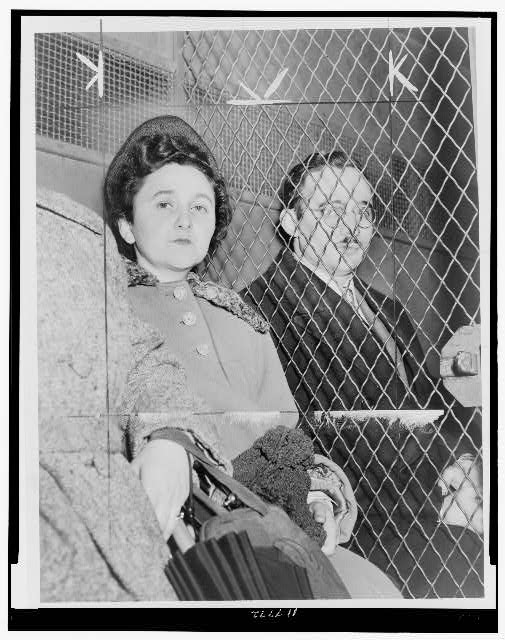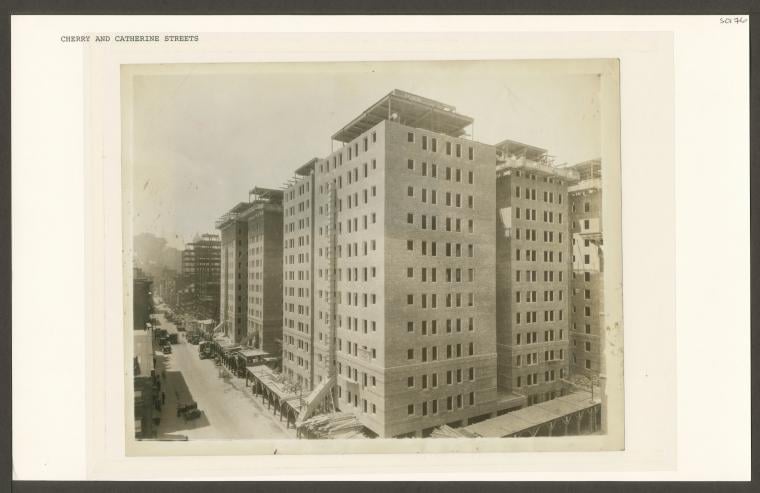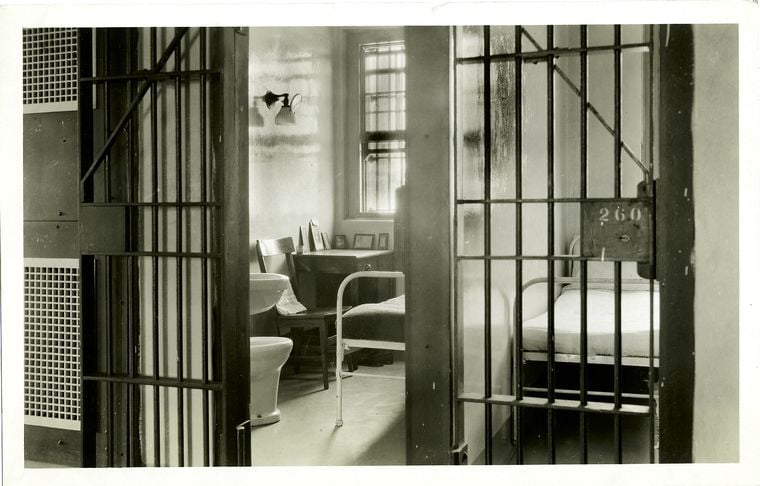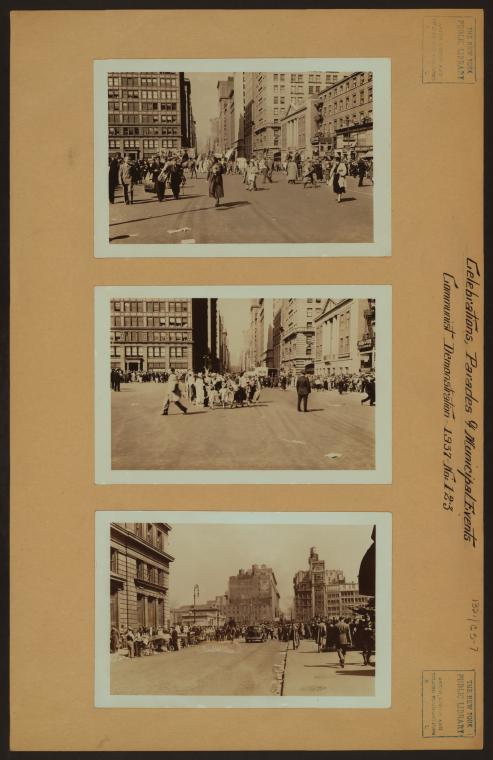Blog Archive
Hometown Traitors: A Tale of Love, Betrayal, and Spies on the Lower East Side
One of the last remaining players in the most notorious spy cases in United States history died in July, but the news was only announced this week as the deceased was living under an assumed name. On Tuesday, the New York Times discovered that David Greenglass had died in a nursing home. He was 92.
Greenglass became infamous in the 1950’s after he provided testimony that sentenced his sister, Ethel Greenglass Rosenberg, and her husband, Julius, to death on charges of passing nuclear secrets to the Soviet Union.

Ethel and Julius Rosenberg after being found guilty by the jury in 1951. Photo courtesy of the Library of Congress.
The story of the Rosenberg’s trial is extremely complicated and is a miasmic portrait of family betrayals and loyalties as well as national and political ones; and it all began on the Lower East Side…
It was not uncommon for some of the Eastern European immigrants on the Lower East Side or their children to be Communists in the early days of Communism and the birth of the Soviet Union. Though many Lower East Siders later became critical of the realities of Communism, at first the political tenets seemed like the equality for which these exiles had been hoping. The Greenglasses and the Rosenbergs were extreme examples of this idealism.
Ethel Greenglass and her brother David were the children of Eastern European immigrants; their mother was from Austria and their father was from Russia. They grew up on the Lower East Side – Ethel met Julius Rosenberg, the child of Russian immigrants, in high school. Initially Ethel’s parents did not approve of Julius, and the young couple met in secret in the rooms of Ethel’s brother Bernard, where there was much discussion of the Communist party.
David also met his wife, Ruth Leah Printz around their Lower East Side neighborhood. They were neighbors and allegedly childhood sweethearts, who also shared a love of the Communist party (it’s hard to imagine now, but for some, Marxist revolution was quite romantic).
David attended Haaran High School and later Brooklyn Polytechnic but he flunked out. He was not seen as an especially bright engineer but he was somehow assigned to work with the top secret Manhattan Project in Los Alamos, New Mexico. There he was able to successfully gather information on the atomic bomb, which he eventually brought back to his sister’s apartment in Knickerbocker Village, a housing complex on the Lower East Side. Either Ethel or David’s wife, Ruth, transcribed the documents, but this matter remains up for debate.

A early photo of Knickerbocker Village, a housing development on the Lower East Side, home at one point to Julius and Ethel Rosenberg. Photo courtesy of the New York Public Library.
Ruth alleged that it was Ethel who had typed the notes, and David defended this position on the witness stand. It is seen as one of the most damning pieces of testimony in the case in which Ethel and Julius were sentenced to death via electric chair. Speculation today entertains the possibility that David exaggerated the roles of his sister and brother-in-law to draw attention away from his own deeds.
David received 15 years in prison for his role in the spying, and was released after 9 ½ years. Ruth faced no prosecution due to the Greenglass’ cooperation with authorities. While evidence today suggests that Julius was guilty of treason, New York Times reporter and Tenement Talk alumnus Sam Roberts prompted an admission from David that he lied on the stand. Though he claimed it was his sister who typed the fateful notes, he had no real memory of this being the case. Roberts received the answer, “’I don’t remember that at all,’ Mr. Greenglass said. ‘I frankly think my wife did the typing, but I don’t remember.’”
[Even after all the years of reflection, David said he had no regrets] “‘My wife is more important to me than my sister. Or my mother or my father, O.K.? And she was the mother of my children.’”
That’s as dramatic a tale as any of love and betrayal on the Lower East Side.

A 'modern' cell at Sing Sing maximum security prison where Ethel and Julius were held and eventually executed. Photo courtesy of the New York Public Library.
–Posted by Julia Berick
